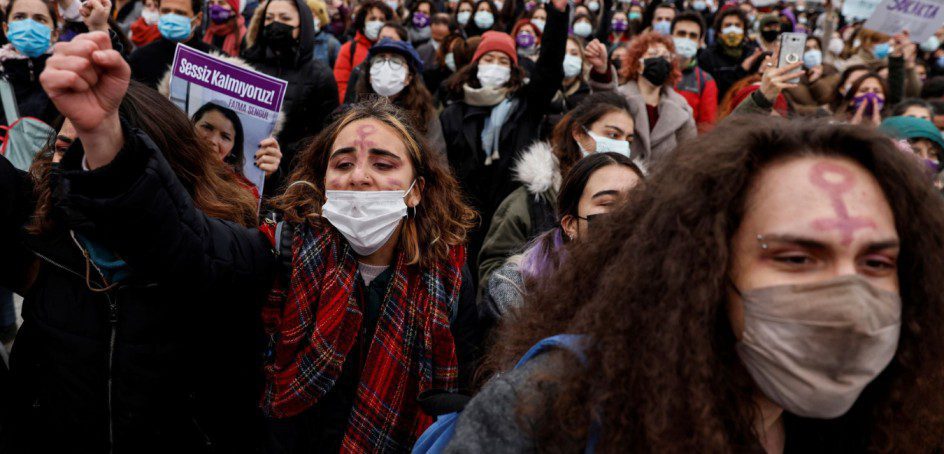Turkey quits international treaty to prevent violence against women


Turkey officially withdrew on Thursday from an international treaty to prevent violence against women. The decision was met with condemnation by many Turks and Western allies.
Protests took place around the country and were planned again over the weekend as an appeal against the withdrawal from opposition parties was rejected by the Council of State on Tuesday.
Demonstrators clashed with police who fired tear gas in Istanbul.
The move comes after President Recep Tayyip Erdogan issued a midnight decree on March 20 that annulled Turkey’s ratification of the convention, legislation designed to protect women signed by 45 countries and the European Union in 2011.
“We will continue our struggle,” Canan Gullu, president of the Federation of Turkish Women’s Associations, said on Wednesday. “Turkey is shooting itself in the foot with this decision.”
She said that since March, women and other vulnerable groups had been more reluctant to ask for help and less likely to receive it, with Covid-19 fueled economic difficulties causing a dramatic increase in violence against them.
Data by the We Will Stop Femicide group shows 189 women were murdered in 2021 in the country, and 409 were murdered last year, including dozens found dead under suspicious circumstances.
“The Istanbul Convention withdrawal will empower the perpetrators of violence while making the victims more powerless. So we have to take on the protection work that the authorities should do,” Gulsum Kav, co-founder of We Will Stop Femicide Platform, told Al Jazeera.
Femicide has surged in Turkey, with one monitoring group logging roughly one per day in the last five years. Proponents of the convention and related legislation say more stringent implementation is needed. But many conservatives in Turkey and in Erdogan’s Islamist-rooted AK Party say the pact undermines the family structures that protect society. Some also see the Convention as promoting homosexuality through its principle of non-discrimination on grounds of sexual orientation.
“Our country’s withdrawal from the convention will not lead to any legal or practical shortcoming in the prevention of violence against women,” Erdogan’s office said in a statement to the administrative court on Tuesday.
However, “the withdrawal sends a reckless and dangerous message to perpetrators who abuse, maim and kill: that they can carry on doing so with impunity,” according to Amnesty International’s Secretary General Agnès Callamard.
10 years down the line Turkey was the first country to sign the Council of Europe treaty during a summit held in Istanbul, and 10 years later it is the first to pull out at a time when crime against women is an all-time high in the country.
Written by Ruth Jane
